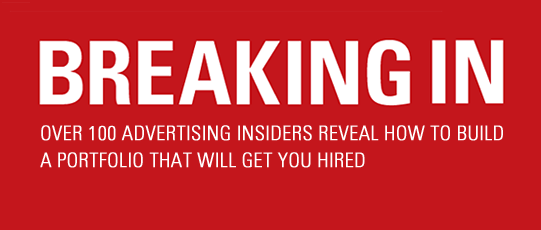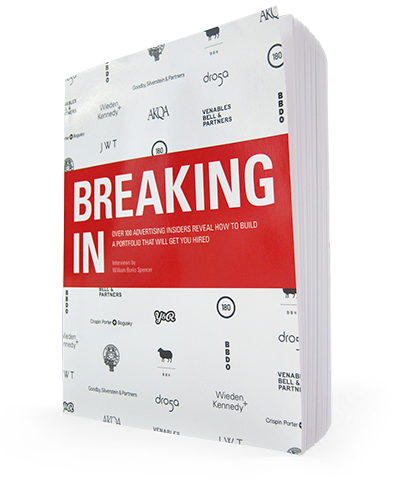Check out some great work from Philip Bonnery.
WS: What do you look for in a student book? And what impresses you?
PB: You’re looking for new, fresh ideas. It sounds a bit cliché, but that’s it: innovative work. Stuff you haven’t seen before. Portfolios are pretty tight nowadays. I’ve seen students from ad schools with really good books. Most of them do internships so they get to work like any other full-time teams, some even get awards from doing a three-month internship.
WS: Do you think just a book of sketches is okay if the ideas are good?
PB: Perhaps as a teaser portfolio piece to get agencies’ attention and stand out from the crowd. But when reviewing books, agencies will want to see finished ads as they want to know you can execute all the work, especially for art directors. Yes, in essence you need to come up with great ideas, but agencies want to see finished pieces the same way clients want to see finished pieces.
WS: Do you think long copy is important to have in a student book?
PB: If you’ve done a long-copy ad, a brochure, or a manifesto, and were able to turn that into something that stands out as clever or funny, more power to you. We should think of ourselves as entertainers. Whatever way it can be achieved: long copy, visual tricks, exploding cats, and what have you is okay—we’ve done our job. In general consumers aren’t fond of advertising, therefore we better make it entertaining and worth people’s time.
WS: What do you think about putting things in a student book that are not ads?
PB: Personally, I like to see people doing things other than advertising. It shows who you are, what you like to do, and all the things that interest you. I’d prefer people who are grounded in other things rather than just “ad geeks.” Also, I find it interesting when people come from a non-advertising background. Advertising is a bit formulaic sometimes—perhaps people could be more receptive to seeing things from a different perspective.
[ … ]


Comments are closed.